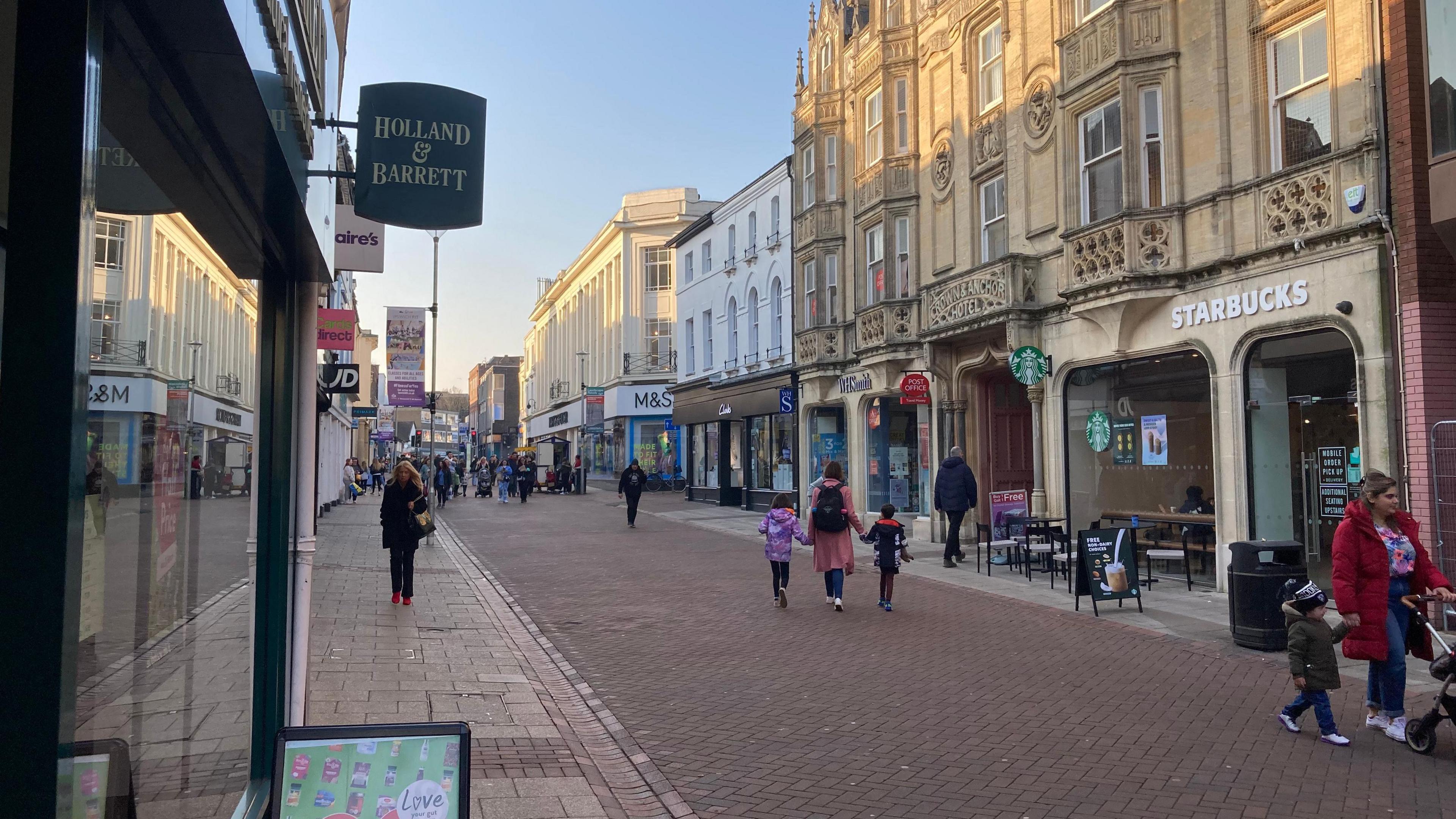Your Voice, Your Vote: Should our MPs be local?

- Published
Voters often want to know how local candidates really are when it comes to the general election.
Anthony McEvoy, who lives in the new constituency of Bury St Edmunds and Stowmarket in Suffolk, is keen to find out.
He got in touch with the BBC via Your Voice, Your Vote questioning the local qualifications of the people standing in his area.
Mr McEvoy asks: "How are any of these people supposed to understand the local issues, let alone represent the people?”
The BBC asked the candidates from the main parties in Bury St Edmunds and Stowmarket whether they believe you have to be local to represent a constituency.
In alphabetical order by surname, here is what they said:
Emma Buckmaster, Green Party
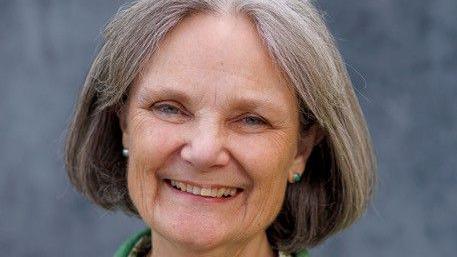
Emma Buckmaster said people preferred local candidates
Emma Buckmaster has lived in the village of Felsham - between Bury St Edmunds and Stowmarket - for 30 years.
She agreed it was better to be a local candidate who knew the constituency well.
"People prefer that," she explained. "But you also have to be dedicated and hard working.
"I have heard other candidates refer to this as 'a beautiful rural constituency’ which it is.
"However, beneath the surface are issues which desperately need to be addressed by parliament. A local candidate would know this."
Ms Buckmaster added child poverty was a "hidden problem that most people don’t see" in the area as well as the loss of biodiversity.
Scott Hussey, Reform UK
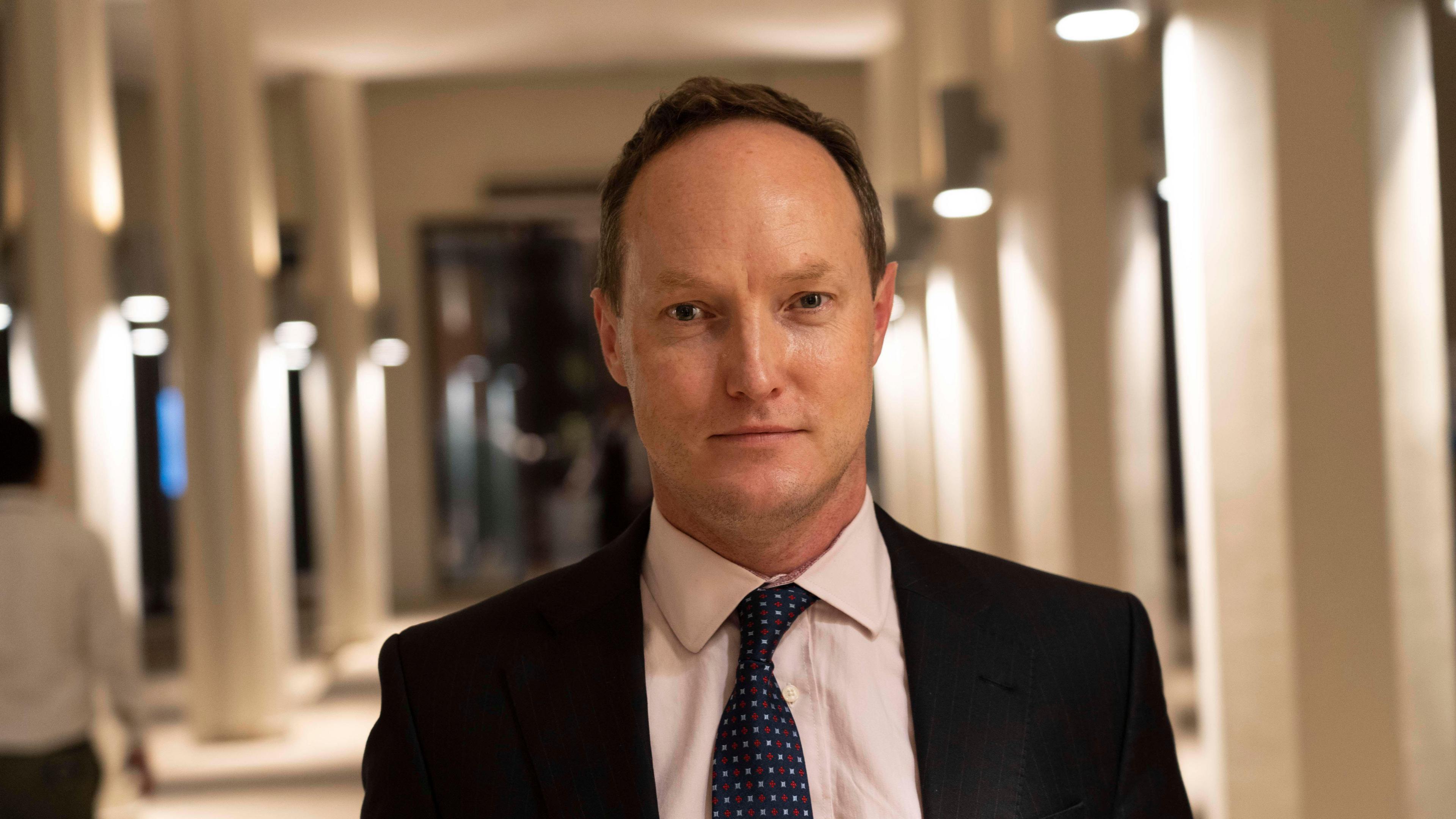
Scott Hussey said other qualities could be more important than locality
Scott Hussey was born in Bury St Edmunds and "aside from periods abroad, still lives in the same place".
"People want an MP with whom they can identify, who knows the area and issues well, and who has skin in the game," he said.
However, Mr Hussey added that “being local does not trump ability and drive, but it does add value for sure".
He explained several traits including intellectual capacity, honesty and dedication come first.
Peter McDonald, Liberal Democrat
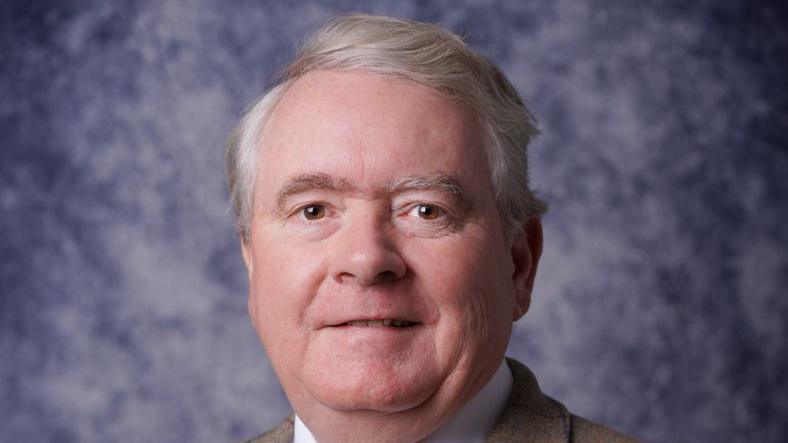
Peter McDonald said it was key to have a connection with your constituents
Peter McDonald is a district and county councillor in Duxford, Cambridgeshire and CEO of an agriculture business in Suffolk.
He said it was important to have a "connection" and stressed he spends two or three days a week in his Bury St Edmunds office and, as such, understands "the whole business environment and business challenges including Brexit".
Peter Prinsley, Labour
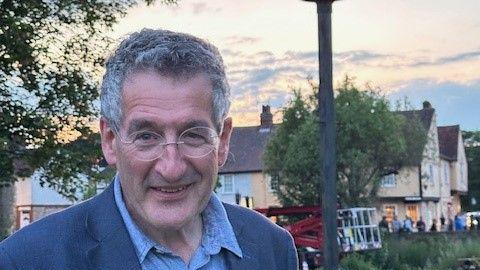
Peter Prinsley lives in Norwich but said the region was home
Peter Prinsley is a Norwich City councillor and works as a consultant surgeon in Norfolk.
While he is from Norwich he said East Anglia was his home.
"I believe good MPs come from every corner of the country, but I think they should have a willingness to serve the community they seek to represent," he added.
William Tanner, Conservative
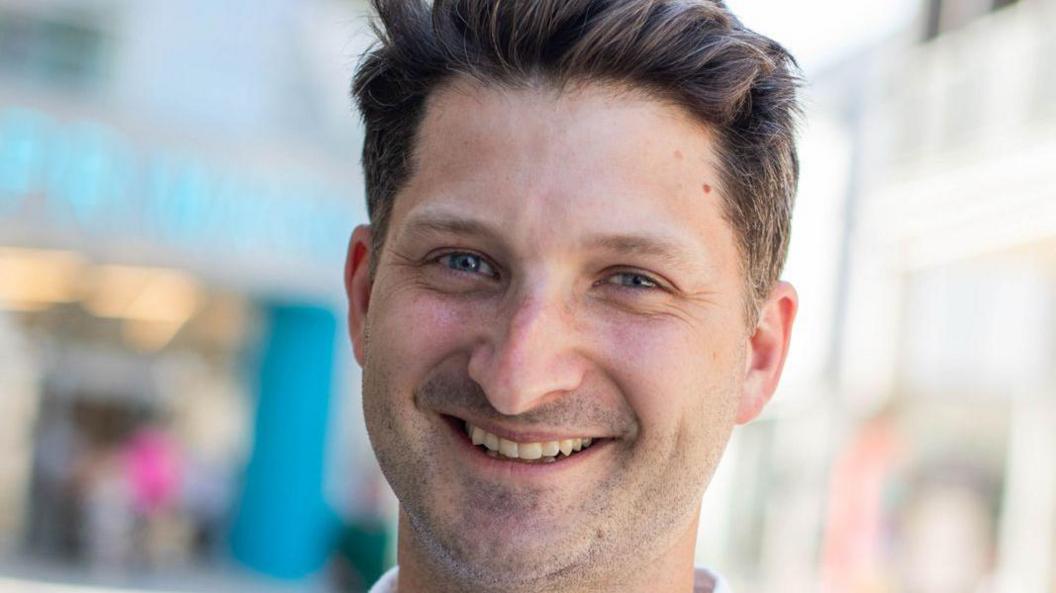
William Tanner is from a Suffolk farming family
Until the election was called, William Tanner was Rishi Sunak’s deputy chief of staff and lived in London.
He is from a Suffolk farming family and said Bury St Edmunds and Stowmarket felt "like home".
"I understand the challenges our farmers face, the importance of community in our small villages, the impact of declining high streets and infrastructure on market towns, because I have seen it all my life," he explained.
He pointed out that people like Margaret Thatcher, Winston Churchill and Tony Blair had no real connection to the places they represented.
"But they made formidable local MPs as well as defining national politicians," Mr Tanner continued.
"So, you don't have to be local, but you do need to love and understand an area to represent it well."
What do people in Bury St Edmunds think?
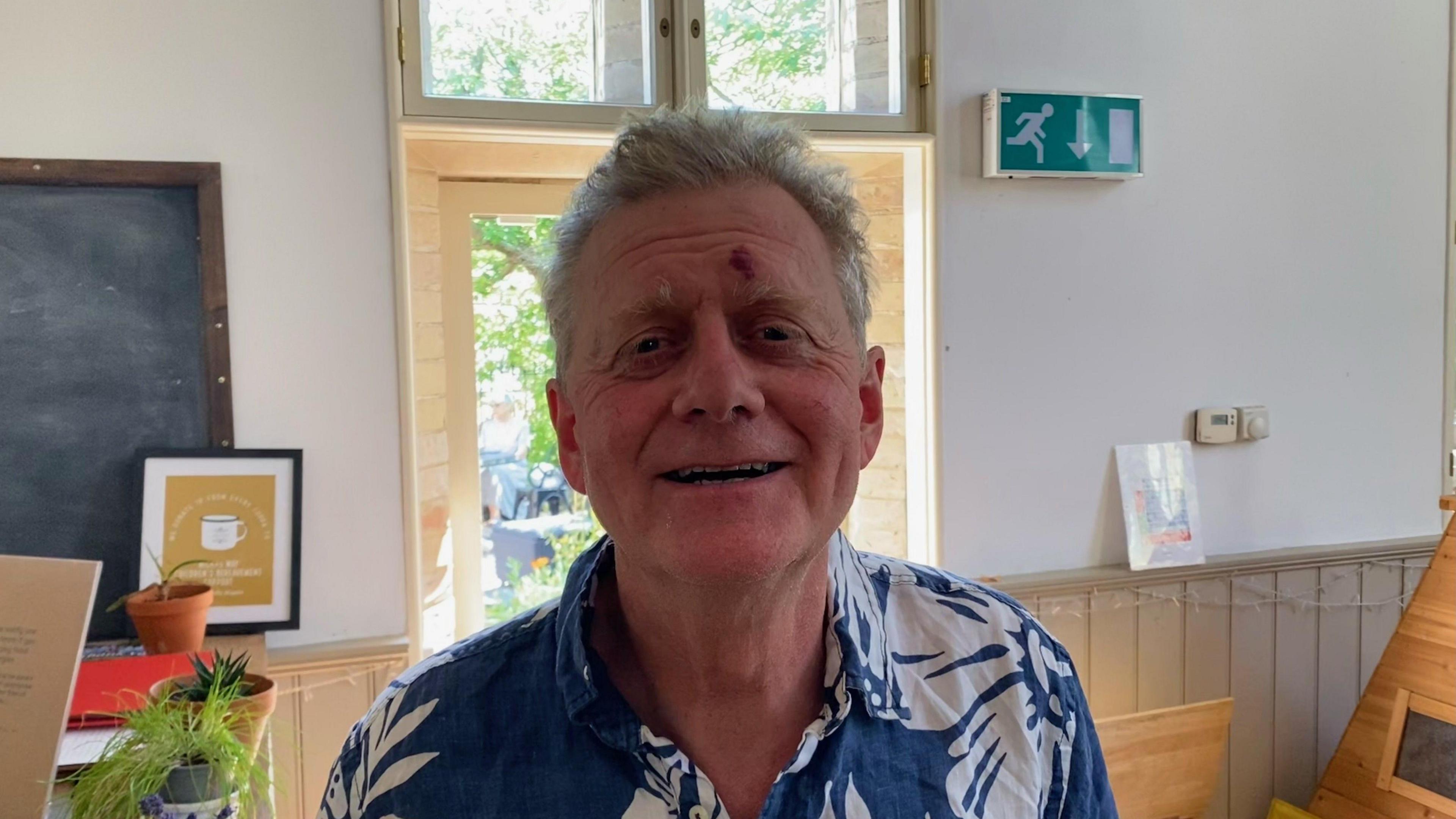
A candidate's locality is not a "game changer" for Andrew Yager
Andrew Yager lives in Bury St Edmunds and while he felt it was important the candidates were local, he said it was not a "game changer".
"I’m very happy with someone who resides, not necessarily in Bury, but in East Anglia somewhere, and is focused on East Anglian and Bury issues... rather than look to Westminster and the Westminster hierarchy and proceeds through the ministries," he added.
Mr Yager’s daughter, Hannah, who now lives in London, said it was important "people can see themselves" in their MP.
"That they know whoever they vote for and whoever is going to be their local MP understands what it’s like to live in their area... and they can hopefully have a shared belief system, but also a shared experience," she said.
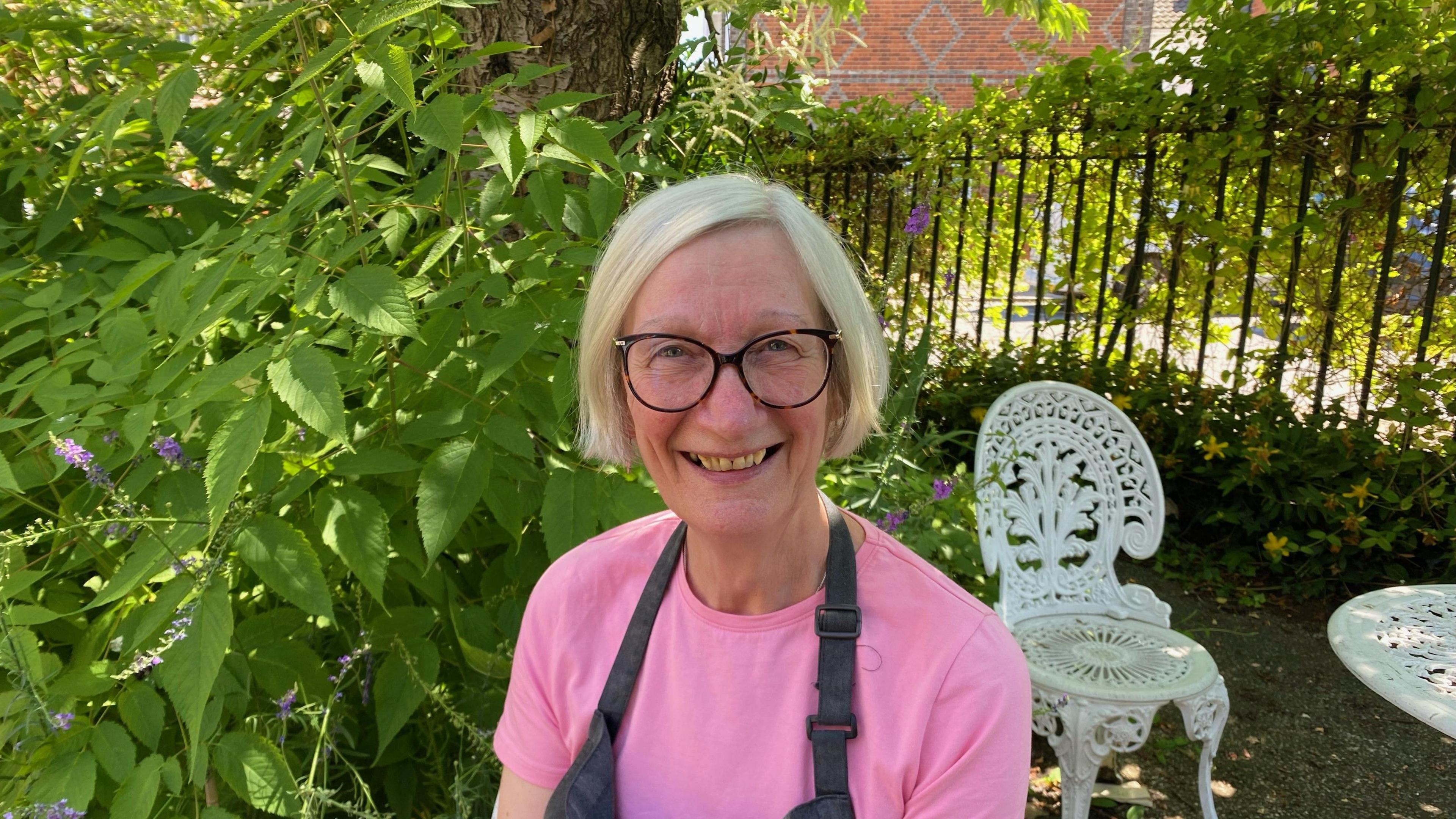
Loraine Raid is a volunteer at Old School Cafe in Bury St Edmunds
Loraine Raid, a volunteer at Old School Cafe on St John’s Street in Bury St Edmunds, said she was "not convinced" being local was the "essential element".
"Because all the problems that we have locally are transferable nationally," she explained.
She used climate change, the NHS, the cost of living crisis and homelessness as examples.
Also standing in Bury St. Edmunds and Stowmarket is Richard Baker-Howard for Rejoin EU, Independent Jeremy Lee and Darren Turner for the Communist Party of Britain.
And you can see a full list of candidates standing in Bury St. Edmunds and Stowmarket here.

What really matters to you in this general election? What is the one issue that will influence your vote? Click the button below to submit your idea, and it could be featured on the BBC.
Related topics
Stories like this
- Published27 June 2024
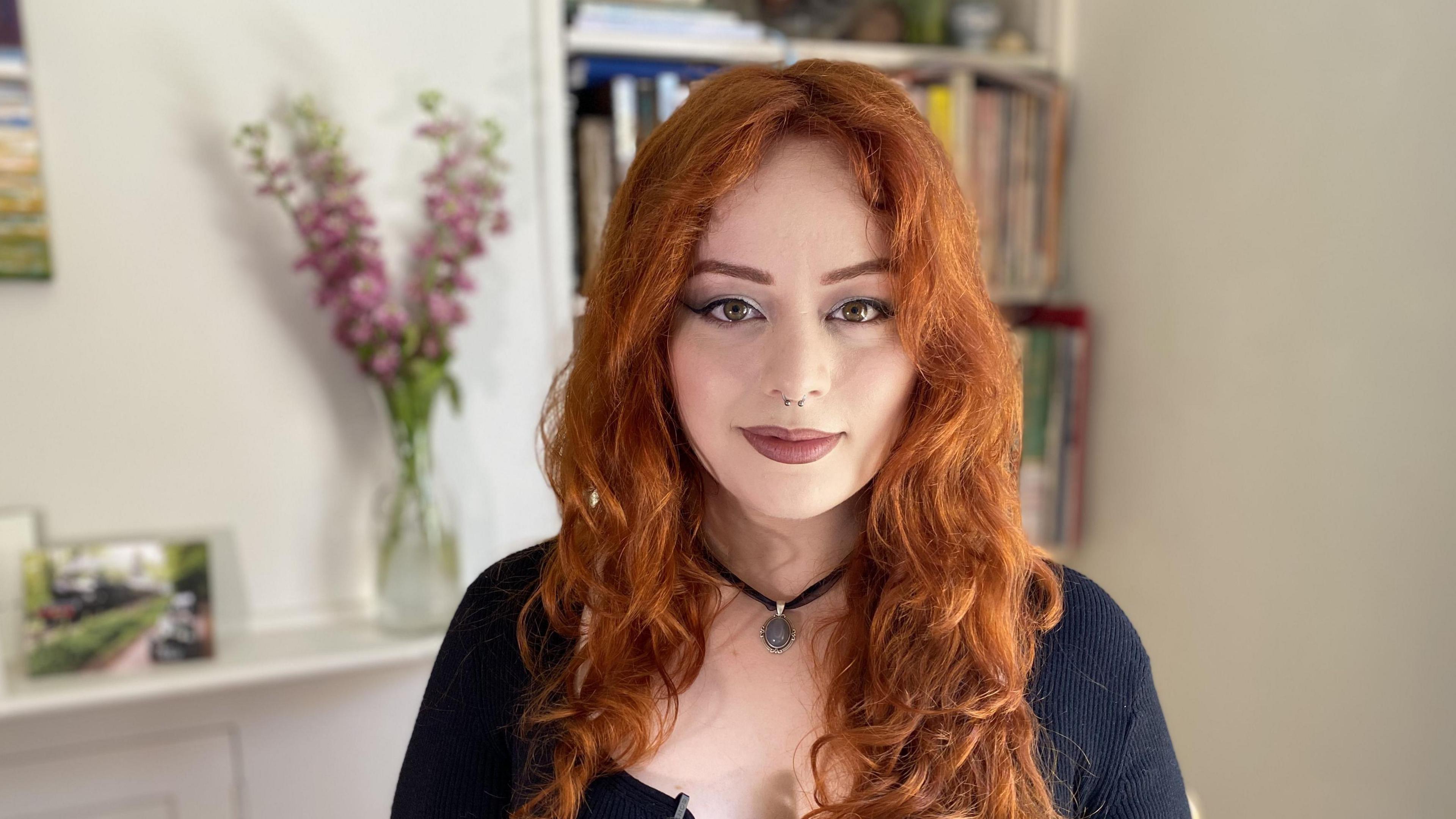
- Published27 June 2024

- Published12 June 2024
